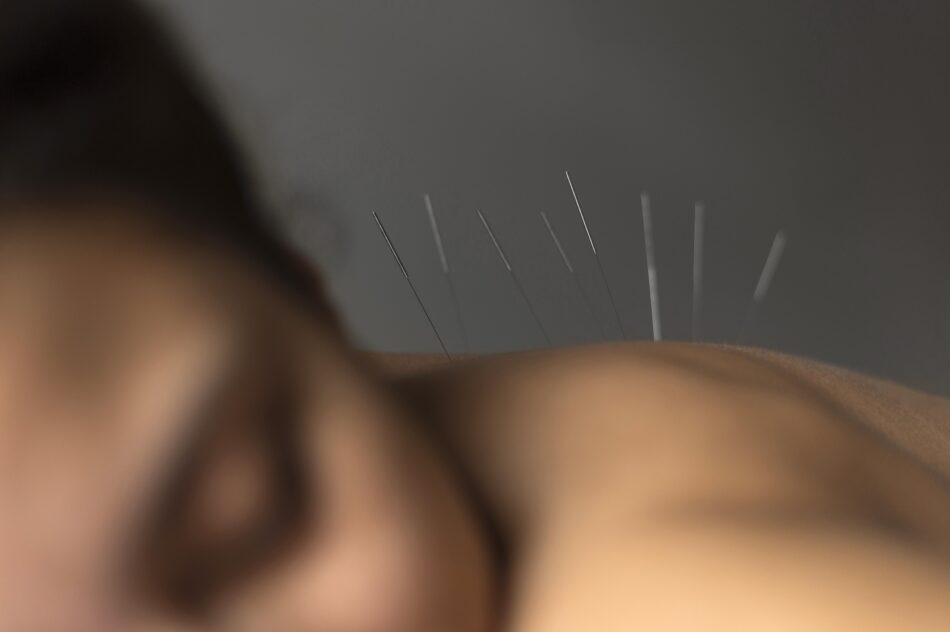Infertility is a common struggle for many couples, and finding the right treatment can be confusing. Acupuncture, an ancient Chinese practice using thin needles, is becoming more popular as a possible way to help with fertility problems. In this blog, we’ll explain how infertility treatment with acupuncture works, what you can expect during a session, and answer common questions to help you decide if acupuncture could be a helpful part of your fertility journey.
How Does Acupuncture Treat Infertility?
Acupuncture is believed to support fertility by helping the body function more smoothly and creating a better environment for conception. By inserting very thin needles into specific points, acupuncture aims to balance hormones, improve blood flow, and reduce stress, all of which can play a role in reproductive health.
Improves Blood Flow to the Ovaries and Uterus
Acupuncture can increase circulation to the reproductive organs, which helps deliver more oxygen and nutrients to the ovaries and uterus. This improved blood flow supports the development of healthy eggs and helps build a thick, healthy uterine lining, making it easier for an embryo to implant and grow.
Balances Reproductive Hormones
Acupuncture affects the hormonal system that controls the menstrual cycle and ovulation. It can help balance hormones like FSH (follicle-stimulating hormone), LH (luteinizing hormone), estrogen, and progesterone. This balance is especially helpful for women with conditions like PCOS or irregular cycles, and it can also support a healthy early pregnancy.
Enhances Endometrial Lining for Implantation
The uterine lining must be receptive for a fertilized embryo to implant successfully. Acupuncture encourages the growth of a triple-line endometrium, which is ideal for implantation. It also increases blood vessel formation in the lining, helping women who have had implantation failures in the past.
Supports Regular Ovulation and Menstrual Cycles
Many women struggle with irregular or absent periods, which can make it hard to get pregnant. Acupuncture can stimulate the ovaries to ovulate regularly and regulate the menstrual cycle. It may also improve egg quality by increasing the ovaries’ response.
Reduces Stress and Cortisol Levels
Trying to conceive can be emotionally stressful, and high stress can interfere with reproductive hormones. Acupuncture helps activate the body’s relaxation response, lowers stress hormones like cortisol, and supports emotional well-being. This can help restore the body’s natural reproductive rhythm and improve overall fertility.
What to Expect During an Acupuncture Session for Infertility Treatment
Personalized Consultation
Your first visit starts with a friendly talk about your fertility journey and health history. The acupuncturist will ask about your lifestyle, previous treatments, and any concerns you may have.
Comfortable Setting
You will relax in a calm and welcoming space designed to make you feel comfortable. Soft lighting, gentle music, and a caring staff help create a peaceful environment for your session.
Gentle Needle Placement
Thin, sterile needles are carefully placed on specific points on your body, usually on your lower belly, legs, or arms. The acupuncturist ensures you are comfortable and explains each step as they go.
Relaxation Time
After the needles are in, you will rest quietly for about 20 to 30 minutes. This time allows your body to respond, and many people feel deeply relaxed or even fall asleep.
Constant Support
You may need regular sessions, often once a week, depending on your needs and fertility goals. The acupuncturist may also give advice on lifestyle and nutrition to help support your fertility journey further.
Common Questions About Infertility Treatment with Acupuncture
Are there any lifestyle changes recommended alongside acupuncture for fertility?
Yes, alongside acupuncture for fertility, experts recommend a balanced diet, regular exercise, stress management, adequate sleep, avoiding smoking and alcohol, and maintaining a healthy weight to support reproductive health.
How long does it usually take to see results from acupuncture for infertility?
Results from infertility treatment with acupuncture can vary, but many people notice improvements in stress, sleep, or menstrual regularity within a few weeks. Significant fertility changes, like improved cycles or conception, often take three to six months of regular sessions. Factors such as age, underlying fertility issues, and consistency with treatment can affect how quickly you see results.
How do I find a qualified acupuncturist for infertility treatment?
To find a qualified acupuncturist for infertility treatment, look for someone who is licensed, board-certified, and has specific experience treating fertility issues and collaborating with fertility specialists.
Can acupuncture help with hormonal imbalances related to infertility?
Yes, acupuncture can help with hormonal imbalances related to infertility by regulating levels of FSH, LH, estrogen, and progesterone, supporting ovulation, and improving overall reproductive hormone balance.
Taking the Next Step with Acupuncture for Infertility Treatment
Trying to have a baby can be tough, and it’s normal to look for different ways to help. Acupuncture is a gentle, natural option that many people try along with healthy habits and regular doctor visits. Everyone’s body is different, so what works for one person might be different for someone else.
Hannah Integrative Health can help you figure out if acupuncture is right for you. They listen to your story, answer your questions, and work with you to find the best way forward. If you’re curious about acupuncture for fertility, talking to a caring expert is a good place to start.
 WhatsApp Us Now
WhatsApp Us Now







